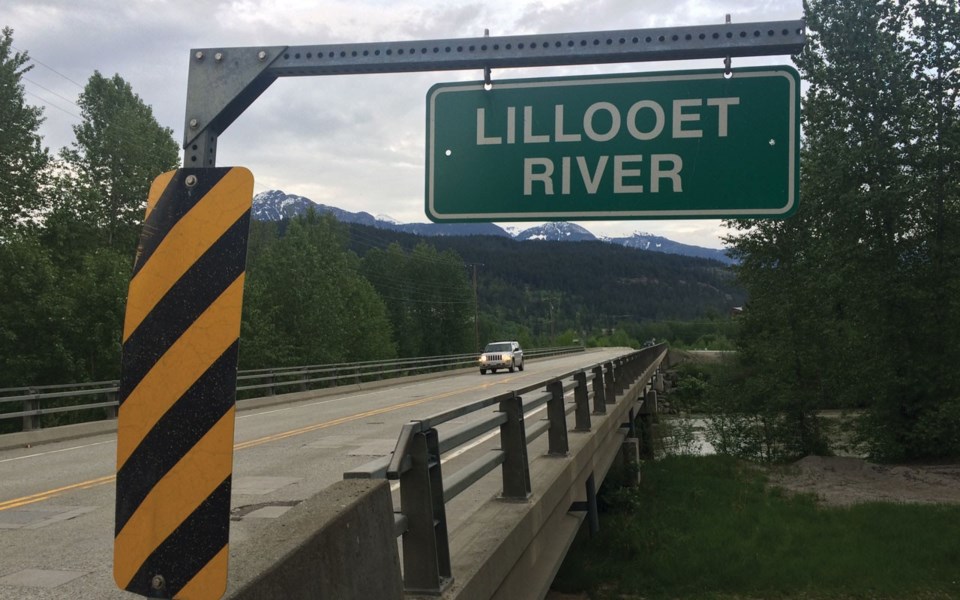Village of Pemberton (VOP) council has awarded the contract for the Friendship Trail Bridge, bringing the fabled connector between Mount Currie and Pemberton one step closer to reality.
The Friendship Trail will run alongside Highway 99.
When completed in the fall, the Friendship Trail Bridge will cross the Lillooet River, on the south side of the existing highway bridge.
The $1,368,000 project was awarded to Surespan, a construction company based in North Vancouver.
"The bid came in a little above the funding we've collected so far through our grants, so we're looking for some Gas Tax funding between Area C and the Village of Pemberton to make up the potential shortfall," explained VOP Mayor Mike Richman.
"That shortfall could be up to $350,000 at the top end—but we're hoping it will be less than that."
Construction—which was originally set to begin last fall—was delayed due to permitting issues.
VOP staff put the contract out for bidding in March. The design portion of the project is already complete.
Originally conceived by the Winds of Change—a collaborative public policy initiative of the Lil'wat Nation, Squamish-Lillooet Regional District (SLRD) and the Village of Pemberton—the Friendship Trail will provide a safe alternative to walking on the narrow shoulder of the highway.
Area C Director Russell Mack underlined the importance of the project on the safety front, and commended Mayor Richman for his hard work on the project.
"I've got to give the mayor a lot of credit because he's worked super hard at it, getting the funding. It's a good thing," said Mack.
Originally budgeted at $1,419,000, the bridge is being funded through a number of different grants. These include a $369,000 grant from the federal Gas Tax fund, a $500,000 provincial grant from BikeBC, a $500,000 grant from Innergex Renewable Energy Inc., and $120,000 Whistler Blackcomb Foundation grant.
Major Amendment
At the May 8 OP council meeting, senior planner Lisa Pedrini informed council of a comprehensive update to the SLRD's Regional Growth Strategy (RGS).
During her presentation, Pedrini, who also serves as a member of the RGS Steering Committee, said she was supportive of all of the proposed changes.
The SLRD Regional Growth Strategy is a high-level, long-term strategy to support collaboration on issues that impact the Sea to Sky region.
The SLRD initiated the review in February 2016 in order to address specific housekeeping amendments, clarify implementation processes, and address certain content gaps in the strategy.
As part of its update, the SLRD is seeking input from the VOP and each member, asking that written comments be forwarded to the SLRD by the end of the month.
The changes come in the form of a major bylaw amendment, which was given first reading at an April 18 SLRD board meeting.
Content revisions include the addition of new goals with respect to food systems, climate change, and additional content regarding preferred modes of transportation priorities and expanded affordable housing policies.
When it comes to transit, the amendment added descriptive language highlighting the importance of Highway 99 as the backbone of regional inter-community connectivity, and added specific language and definitions of preferred modes of transportation.
For housing, the amendment clarified the definition of affordable, added a reference to aging in place and a direction on seniors' housing. It also added strategic direction around short-term nightly rentals.
The amendment contained language recognizing the importance of agriculture to the region's economy, added language to advocate for increased provincial management in high-use parks, and language to ensure trails are developed to be compatible with farm and ranging operations.
Council voted unanimously to support the changes.
"One of the main focuses we at the board have been looking at is how do we support growth in our region that makes sense on many levels," said Mayor Richman, who also serves as a director on the SLRD's regional district board.
"One of the things we definitely wanted to focus on is making sure we focus on development in the current urban areas. There's a lot of language and discussion around that."
The SLRD will also be hosting a community open house/information session in each member area in June, which will allow the public to learn more about the proposed changes.
Additional information on the changes can be found on the SLRD's website: https://www.slrd.bc.ca/inside-slrd/current-projects-initiatives/regional-growth-strategy-rgs-review.
Biodiversity targets
VOP council voted unanimously to ask the Union of BC Municipalities (UBCM) to request the province set aside dedicated funding for the purposes of system expansion, ecological monitoring and research, and management planning to meet measures set out in the 2020 Biodiversity Goals and Targets for Canada.
The request was put forward to council by the Canadian Parks and Wilderness Society, a conservation organization that seeks to protect Canadian Wilderness.
In 2015, Canada adopted a suite of national targets known as the "2020 Biodiversity Goals and Targets for Canada," which commits the country to conserving at least 17 per cent of terrestrial areas and inland water and 10 per cent of marine and coastal areas through networks of protected areas and other effective area-based conservation measures.
"One of the biggest assets and most wonderful assets we have in B.C. is our wildland and our forests and water and parks," explained Richman, following the council meeting.
"We've been welcoming the world, and that's great, we're happy to share, but we want to make sure we're protecting these assets, that we're protecting our biodiversity and our ecosystems," he said.




